Make Believe Melodies Favorite Japanese Albums 2021: #10 - #01
Hey, Earlier Than The 2020 Edition
The 2021 list reaches its conclusion! No restrictions, just thoughts. Catch up with the first half here, #50 - #31 here, and #30 - #11 here.
#10 STARKIDS — 4D
Are the kids alright? Japanese music over the past two years argues “no way, man.” Breakout groups like YOASOBI, Zutomayo and many more swap out the romanticism J-pop has long clung to in favor of a realism best summed up as “glum.” Ado scored the zeitgeist hit of 2021 by giving into pure rage, staring at society and howling back. Go down a level, and domestic rap / “hyperpop” took it even further, channeling a letdown in how things shook out for them and transforming it into sonic ballistics.
No song better sums it up for me than “Kujyo Cypher,” wherein gang of youths STARKIDS invite some pals into the streets of Osaka for a Strong-Zero-powered vent session wherein they celebrate the value of not working a job, threaten to stab you and insult your Uno skills, before generally rejecting all this bullshit. Here’s what PTAs across the country should have been concerned about, it seemed, not “Usseewa.”
But what if all of this isn’t giving up and nihilism but…some of the most earnestly optimistic music coming out of Japan today?
STARKIDS’ 4D came out just a few months after “Kujyo Cypher,” but lets its ambition and downright positive energy flow to the front. “You are about to enter a world / where only peace exists / where only dreams are accomplished / this is STARKIDS / the realm of the gods / welcome to your new life,” is how this album opens, and while it initially feels like it could be a joke, the rest of the song and the 20-some minutes following prove that it’s heartfelt. The reality of life isn’t a barrier to the group, but simply a hurdle to leap over. Same for musical fences, as STARKIDS pinball around backed by mutating breakbeats (“Mayday,” “Dispatch”) and bleary bopping (“Dandelion”) before closing it all out with…SoundCloud-era Eurobeat on “Flash.”
This genre mixing is a defining element of this scene, and STARKIDS just do it as well as anyone else in Japan right now. Yet it’s the heart beating through 4D and the surprising focus they have throughout — heads kept up, focused on going up and “destined to win.” It makes you realize maybe the kids are alright, more so than us older folks — they see the realities of the world, but see a better world in themselves and their peers and…most youthful of all…music. STARKIDS just lead the pack in positive thinking. Listen below.
#9 Dos Monos — Larderello
A masterclass in focus. Dos Monos waste zero of Larderello’s 997 seconds, the trio swooping and spitting all over these discombobulated beats. Back on their debut, these guys were warping music and loading every corner of their songs with rapid-fire references. They’re still doing that…but at a quicker clip, the sounds more dizzying the lyrical details zooming by, revealing themselves on repeat visits.
Their horn-based beats get melted down and shaken up, to the point where closer “21st Century Nostalgia” imagines what old-timey children’s music dunked in bleach. Rather than back off a little from these newly warped backdrops, Dos Monos throw themselves into it and match the intensity around them. They tag-team over these sounds with extra ferocity, seeing what directions they can push their voices and how hard they can vocal-check everything around them. That they fit in observations on being young in Tokyo amidst this charging is all the more impressive. Here’s their big leap forward, done with the realization that you don’t need a lot of time to leave a deep impression. Listen below.
#8 For Tracy Hyde — Ethernity
Nothing on any album released in 2021 threw me off like hearing Barack Obama speak on hot dogs, fireworks and America on Tokyo indie-pop group For Tracy Hyde’s Ethernity. It also makes perfect sense — their latest serves as part ode, part nostalgic daydream and part criticism of the United States, a country two members of the outfit have close ties with, as they told me upon its release. They filter politics into a style usually happy to celebrate the mundane rather than poke at the uncomfortable. For Tracy Hyde do it by not being too overbearing, but with references both hazy (‘50s imagery, adolescent follies, shout outs to Blockbuster Video) and more vivid / bittersweet (like…the president pre-Trump talk about the Fourth Of July and embarrass his kids). It’s daydreamy and disorienting all at once — fittingly, it opens by referencing the theme song to Twin Peaks, a series peering beneath the wholesome surface of American life.
It helps that this same energy carries over to Ethernity’s music, the most diverse and daring For Tracy Hyde have gotten yet. They sneak metallic digital sounds into the corners of “Radio Days,” share what Azusa Suga affectionately describes as a “Nirvana ripoff” on “Chewing Gum USA,” and even wade into lonely country-folk on “City Limits.” Coupled with all the nods to America both imagined and all-too-real, it makes for a kaleidoscopic tribute to everything great and unnerving about the U.S. Though let’s also shout out the other triumph present here — For Tracy Hyde can just write a top-notch shoegaze-adjacent indie-pop song, with “Just Like Fireflies,” “Desert Bloom” and “Sister Carrie” being career highlights. Sometimes, it’s OK to step away from conflicted political feelings and just appreciate something deeply pretty. Listen below.
#7 Perfect Young Lady — Perfect Young Lady + PYL Demo And…
The boundary between “demo” and “finished song” vanishes in the world of Perfect Young Lady. Which is another way of saying — do not fear if you can’t get your hands on Perfect Young Lady, a cassette-only offering that appears to now be sold-out online, because the release preceding it captures the sound of this bedroom artist just as perfectly, regardless of the word “demo” slapped on the title. This is bedroom-pop at its most playful, a small space transformed into a playground to indulge in whatever lo-fi fantasies the creator wants. Perfect Young Lady can become a hitmaker, a ska revivalist or the person dreaming up the soundtracks to Aeon supermarkets in this nook. She chooses all of those, and much more.
Across both these releases, Perfect Young Lady constructs catchy pop out of wonk. Shimmering melodies intersect with samples of animals yelping on “COLLECTION,” while “sui sui” offers a sweet flow interrupted by demented steel drums slicing through. There’s detours into twinkly sock-hop rock and department store jingle-ry. Yet none of it is ever all that weird, because at their heart Perfect Young Lady is just creating catchy pop from the tools in front of them, whether that’s guitar or rinky-dink beats or synth flute transformed into one of the most beautiful sonic touches on any song from 2021 (“Iya!”). Here’s the most basic animating force of so much music — take what you’ve got, and create — being embraced fully, and resulting in a bedroom artist with an oddball sensibility drafting up her own sonic world. Get it here, or listen above.
#6 4s4ki Castle In Madness + Here Or Heaven
In less than 12 months, 4s4ki became an elder statesperson for a whole new generation of domestic creators. This was the year Japanese “hyperpop” or “digicore” or “SoundCloud rap 2.0” or whatever you want to call younger artists taking cues from a wide variety of genres and blending them into one blasted-out experience truly blossomed, and it felt like many were nodding to what 4s4ki has accomplished, especially with an album I consider the best of 2020. What’s a pioneer to do? Keep pressing forward, albeit with higher stakes on the line.
Released by a major label, Castle In Madness found 4s4ki continuing to expand her sound, experimenting while holding on to the emotional twists that make her pop mutations so sticky. There’s moments of her moving closer to what you think “hyperpop” sounds like, while still finding her own angle on it (for the record, she’s definitely not someone wanting to limit herself with that micro-genre tag, which is telling), yet she’s also welcoming in more pop-punk and metal influence, adding new textures to her noise. Familiar producers link back up with her and continue doing some of the best work of their careers — Gigandect, KOTONOHOUSE, Masayoshi Iimori to name a few — while 4s4ki herself showcases her production talents throughout too. She’s also branching out, working with more international names as she seeks out like-minded creators and tiptoes towards more global attention. Coupled with the just-under-the-wire Here Or Heaven EP, 4s4ki stayed curious about what she could do, and remained one of the most adventerous artists in the country. Now, though, she’s not alone, with a whole wave of creators following in her steps. Listen below.
#5 Soshi Takeda — Floating Mountains
The past haunts Floating Mountains, but never controls it. Soshi Takeda turned to ‘90s-era hardware to construct the crystalline glide and bliss-embracing grooves found within. It’s a direct nod to a time and a mood once trendy, then lost, and then rediscovered. Listening to the chimes rippling across “Water Reverberation” or the sauna-paced jog of “Ancient Fish,” I teleport to some faded new age spa, the type where you could put an LED-rigged contraption on your head in an effort to find inner peace or the next plane of existence. Yet I’m fooling myself, with the strongest evidence being how present Takeda’s tracks play in my life. Whether I’m sitting at a desk, riding the train or taking the long route to get to the station, there’s his gentle rhythms and synth washes trailing me. Yesteryear, rejiggered for now.
Fake nostalgia dictates a lot of musical and pop culture trends worldwide, so part of Floating Mountains appeal simply lies in how Takeda echoes previous years via the tools used to construct these works, but never lets them be tied to any idea of what it was once like. The title track’s synthesized flute and beat propels forward, and the revelatory electronics and melancholy borders of “Lantern Reflection” don’t beckon to decades prior, but situate themselves in the now. A simple way of summing it up — Takeda gave himself a limitation to overcome with the instruments used, and wrung songs out of what was available to him that sound as thrilling as anything existing in contemporary times but with a slight, sweet sadness owed to what those sounds bring to mind. There’s nothing “past” about Floating Mountains — it’s a mood for the moment. Get it here, or listen below.
#4 e5 — Cassette
The reason “hyperpop” places so much this year’s list isn’t solely due to the free-wheeling approach to sound young artists in this space embrace. It defines 2021, for me at least, because it’s where a fresh cohort of creators could experiment with expressing themselves. Think of it as an underground counterpart to what’s playing out in J-pop, where names like YOASOBI, Ado and other chart-toppers reflect the mixed emotions of Japan today. After years of absorbing internet-first acts and realizing all the tools they needed to create were within their grasps, people like 4s4ki, STARKIDS, Cuffboi, Trash Angels and many more have found room to be whoever they want to be…and sound how they want.
If I’m here to celebrate the way these young artists bent conventions and language, e5’s 15 minute HIT session has to sit on top. Nothing captured the week-to-week thrill of logging on to SoundCloud and being greeted by upwards of a dozen users with incomprehensible names uploading songs that, almost without fail, blew your mind up. e5 popped up on that list frequently over the last 12 months, whether alone or as part of the group Dr.Anon, owing to how she warped her voice — sometimes into pure electricity, pushing it further than most in this niche — and sliced-up vocabulary.
It’s a constant adrenaline rush, from the music propelling her forward to e5 darting through them while dropping lyrical treasure. “Gohst town” skitters to life before blasting ahead, all with e5 tightroping between spooky imagery and heftier emotional weights, ending by repeating “ha ha ah” in unsettling monotone. She can swagger (“BANN!!”) and stew (closer “Entanglement”), but her openness to layer filters onto her own voice and speed it up to something only a computer might spit out turns these songs from potential cliche of the style into transhuman thrills. She sums it up better than I could on the genre-celebrating “HyperPopWave” — “Naminori HyperPopWave / my voice kasoku like a whip” or, a translation, “Surfing the HyperPopWave / my voice accelerates like a whip.” A flex.
The way e5 approaches language — both in diction and her more literal English-slamming-into-Japanese-and-vice-versa approach — places her on the same artistic line as experimental creators playing with the texture of sound (see: the next entry) except the tool she’s happiest to screw around with his her own voice, while her lyrics celebrate flexibility over definition, feeling connected with the pun-heavy rock of Soutaiseiriron and the KOM_I fronted Suiyoubi No Campanella’s love of how words sound colliding into one another. “Shawty callin NASCAR skrrr! / Okanemochi Flex” just sounds absurdly good on highlight “(uwu,” and seconds later e5’s declaring herself “new female.” These songs look wild when written out, full of kanji bleeding into the alphabet and spaces galore that underline emphasis (again, the whip). It’s an artist discovering and mastering their own delivery system, and a fun-sized argument for HyperPop as the most thrilling musical development going right now…where Japan has carved out its own space. Listen below.
#3 Foodman — Yasuragi Land
Have you ever been inside a Workman? Not one of the bougie “Workman Pro” or “Workman Plus” outlets nestled in malls appealing to suburbanites sick of Uniqlo. A real Workman, built for construction workers and outsidery types in need of ridiculously thick socks and candy-colored jackets with names like “Hard Master.” The aisles overflow with boxes and nothing is sorted that well, with plenty of outerwear just awkwardly sticking out. There’s maybe a changing room tucked behind the register, but most shoppers just try on outerwear right there on the floor. It’s a familiar slice of life, but presented in a totally off way, where the very concept of clothes shopping turns goofy.
Thank you Google Image Search for this photo of the inside of a regular Workman, though the one near me is much more unruly.
Foodman offers pretty much the same upending of the mundane via music. He’s been the best experimental artist in Japan…and one of the best, period…for over a decade now thanks to a fondness for finding sounds and letting them mutate into some truly ridiculous forms. The everyday has always been part of his sonic supermarket flyer, but never has Foodman poked and pulled at the edges of hum-drum reality like on Yasuragi Land. Here, Takahide Higuchi joins the likes of Hayao Miyazaki and Haruki Murakami in offering a surreal take on the familiar, except inspired by, like, roadside rest station food courts and suburban super sento.
The bedtown flights of fancy Foodman brings up are possible thanks to a continued love for sound. Dude just takes snatches of guitar strums, bell bing-bongs and whatever the fuck comes out of his electronic equipment and turns it into giddy songs. Like, these things are just so mood boosting, even when they stumble around like crude cartoon character trying to walk (“Shikaku No Sekai”) or ramping up drama via the presence of Taigen Kawabe (“Michi No Eki”). I’m already pushing Substack’s length limits here, so I’ll spare you the paragraph about how nobody does percussion quite like Foodman, and how he just finds the most playful ways possible to make a track skip forward, on full display across Yasuragi (though special shout out to closer “Minsyuku,” which…look, I make it sound like Foodman is a real artistic weirdo, but then he drops a groove like this that a bunch of label players would kill to generate).
The loop of everyday life can be dulling, but Foodman is here to peel back the familiar and remind of how much fun exists even in the seemingly boring corners of the world, if you just tilt your head a bit. Get it here, or listen below.
#2 NTsKi — Orca
There’s this ever-present fear that the internet…or “the way we are today…”fragments everything in its path. Culture, skeptics argue, gets broken into seemingly infinite constellations, and few connect in any meaningful way. We are a giant Spotify playlist of tracks thrown together on random, at best linked by a vague sense of vibes.
I think that’s surrendering to cynicism, and I’ll point to Orca as the counter to this sort of thinking. NTsKi’s debut album synthesizes a half decade of sonic trends in Japan’s experimental community while crystallizing it all into the best single collection of songs to emerge out of this space yet. The Kyoto artist channels new age swirls, Yen Records nostalgia, Wasabi Tapes’ sonic dynamism, K/A/T/O Massacre’s freedom and so much more into a unified listening experience.
NTsKi excels at getting the most from spaces. Hear her glide between voice and squeak samples on the discombobulated pop of “Kung-Fu,” or watch her draw out tension from the woozy pacing of “Plate Song.” There’s a world where the tender skip of “1992” mutates into proper radio pop, but here she lets the messy intimacy — and synth blurts — spill over. And there’s definitely a reality where the off-season reggae of “Labyrinth Of Summer” is brightened up a bit and soundtracking a beach resort commercial. Yet here it sits, NTsKi leaving in all the gloomy tension that dashes the seaside warmth and transforms it into something all her own.
Orca is one of 2021’s best in part because it’s an artist fully stretching themselves out, trying out a wide variety of sounds and ideas, all while hitting on most of them. Yet what makes it special is the way it ties together threads scattered about, helping create context and a sense of place. Le Makeup and Dove have proven to be some of the most influential artists in Japan over the last half decade, and here they are joining NTsKi for highlight “On Divination In Sleep.” Sounds and percussion choices nod to a new generation of experimental creators in the country, while the decision to cover Miharu Koshi’s “Parallelisme” is less about tapping into on-trend Bubble-era digging but a nod from one pop experimenter to another, channeling the past to help point towards where it all goes next. And in all those visions of tomorrow, NTsKi crafted one of the most iridescent works of now. Get it here, or listen below.
#1 Ms. Machine — Ms. Machine
If this list has any overarching narrative, it’s of disparate connections leading to exciting new music, and communities being closer to one another than anyone involved might realize. It plays out in genre (via the sonic blur of hyperpop) and in time (from artists connecting the past with the present) and also in spaces (whether they be between the experimental corners and more mainstream spots, to the internet and the IRL). Barriers have fallen — consciously or not — and ideas are flowing, resulting in a lot of excitement.
Trio Ms. Machine quite possibly capture this better than any artist here, with their eponymous debut feeling like the right snapshot of 2021 in Japanese music. Here’s a group fronted by a rapper, once existing as a standard-issue rock outfit, but transformed by an embrace of machine beats and niche genre. Ms. Machine exists both in the well-trodden rock clubs of Koenji, while also having a foot in the experimental kookiness that is Forestlimit, just a short bus ride away. They are familiar, but new.
OK, let’s drop the big top-spot pontificating for a second. Ms. Machine has been my favorite album of 2021 since it arrived one year ago, and didn’t budge in the months after despite a lot of great full-lengths and EPs arriving in that span. Perhaps part of that stems from the unsettling sound of it. The Nordic-inspired chill running down the spine of this debut fit nicely into the time period it entered into, where even a seemingly innocuous sentence like “I want orange t-shirts” on “Lapin Kulta” takes on a creeping, unnerving vibe the more vocalist Sai says it, only becoming more uncomfortable as she abandons a singing delivery in favor of straight talking to close out the song. The regular becomes kind of creepy, but also really catchy.
And these are just incredibly well put-together numbers, excelling thanks to the mish-mash of styles they were born from. Ms. Machine’s punk origins come through in thrashing cuts such as “Nordlig Ängel” and “Girls Don’t Cry, too,” but the electronic flairs lighting up “Lapin Kulta” and adding a burst to the otherwise lurching “2020” add more layers to the music. They merge them all just right, to make songs that have an uneasy revelry to them even while the guitar chug underneath implies something much more sinister.
Key to Ms. Machine’s sound, as they told me last summer, was embracing machine percussion after losing a physical drummer, and that turns out to be the happiest accident of all. The beats keep everything focused and provide extra oomph, while also allowing the trio to draw from the internet microgenre witch house on songs such as “Black Sun,” which features shudder-inducing voices trailing off in the back, contributing to the draftiness of the whole number and making Sai’s words all the creepier.
It’s a hell of a debut alone, with Ms. Machine conjuring up a mood and energy all their own here. But Ms. Machine also offers the perfect snapshot of where Japanese music — all levels of it — is at right now, while never really settling into any trendy slot. It’s rock forged in livehouses and given extra juice from an interest in electronic music and internet genres that laid dormant, but still circulated in the air. It’s a live band with a software foundation. It’s a downright chilly album apt for the moment but exciting enough to offer…gulp…optimism about what comes next.
It dabbles in the same genre experimentation and internet referencing as hyperpop, but does so through a rock band format. It’s experimental but also focused, knowing what needs to be done to make a good song. It’s bleak, both in sound and often in lyrics, offering dashes of hope along with a subtle feminist perspective to give it a political edge. There’s echoes of the past, whether found on metal CDs or abandoned Tumblr pages.
Ms. Machine was my favorite album of 2021 thanks to how much its ominous chug and web-born creep stuck in my head, all while allowing just enough light in to offer hope of getting out of sonic winter. Yet in the way it bridged gaps in major musical trends and captured the spirit of art in Japan today, it’s also the album of 2021. Get it here, or listen below.
Written by Patrick St. Michel (patrickstmichel@gmail.com)
Twitter — @mbmelodies





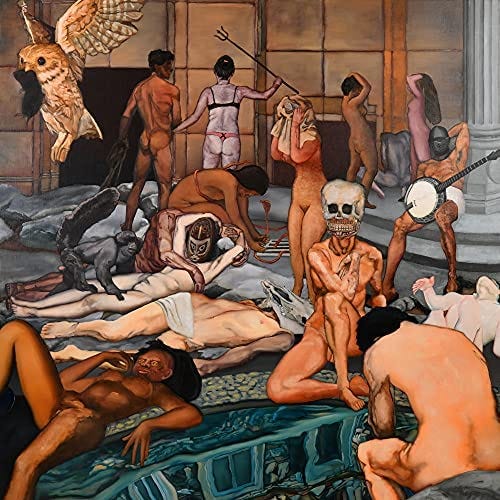

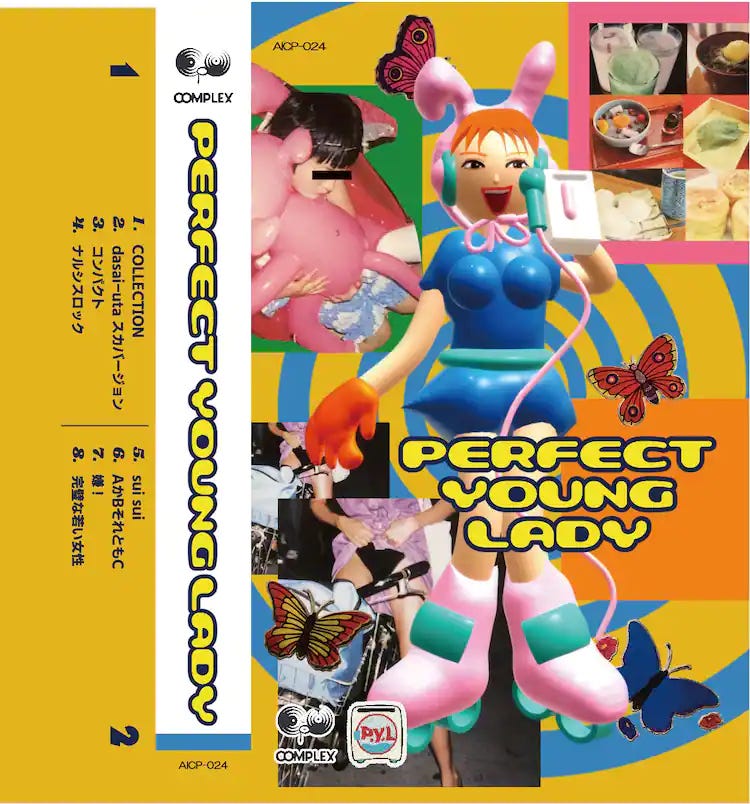
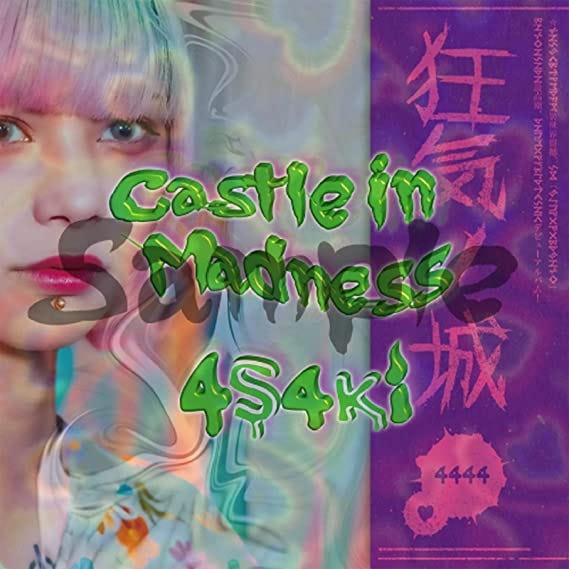
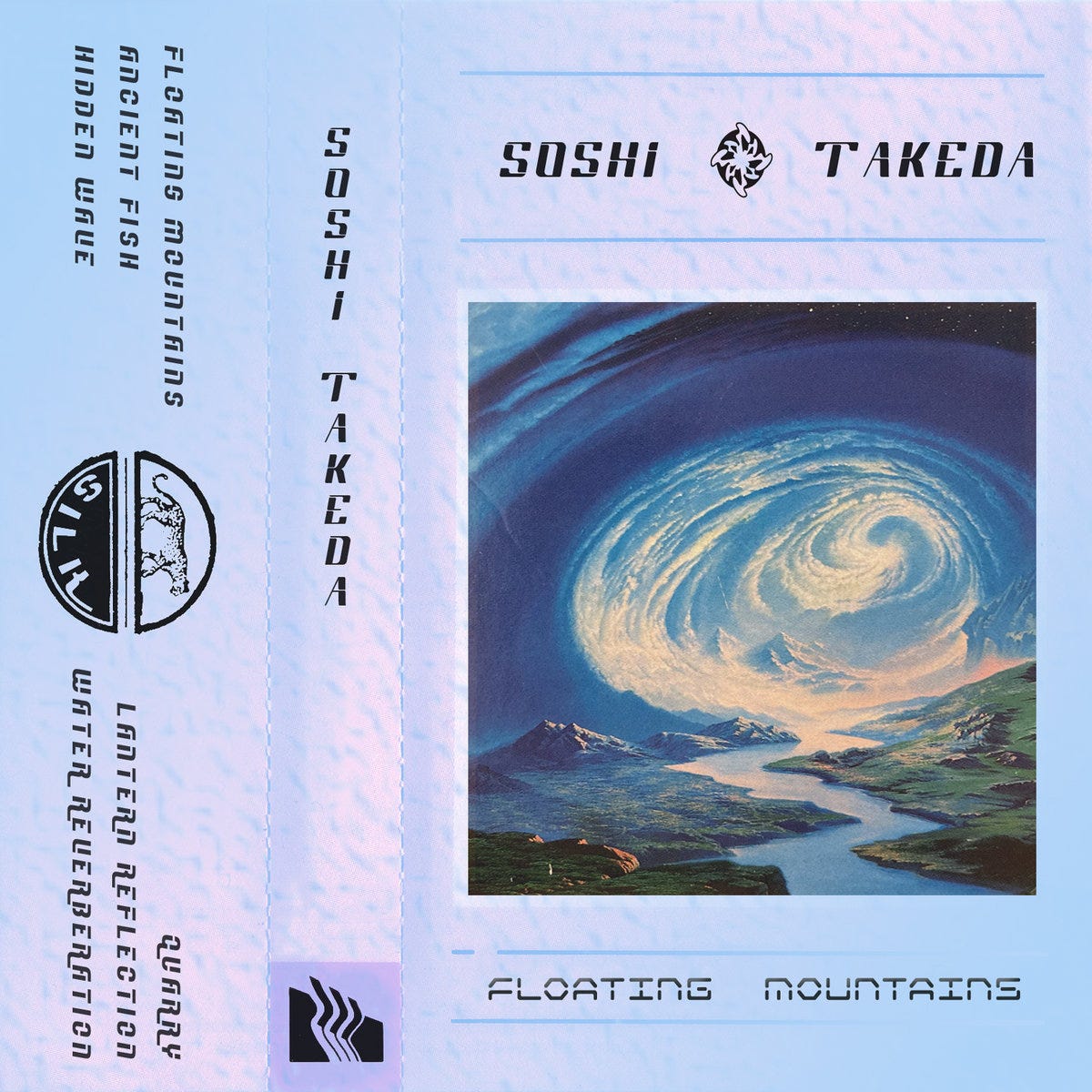


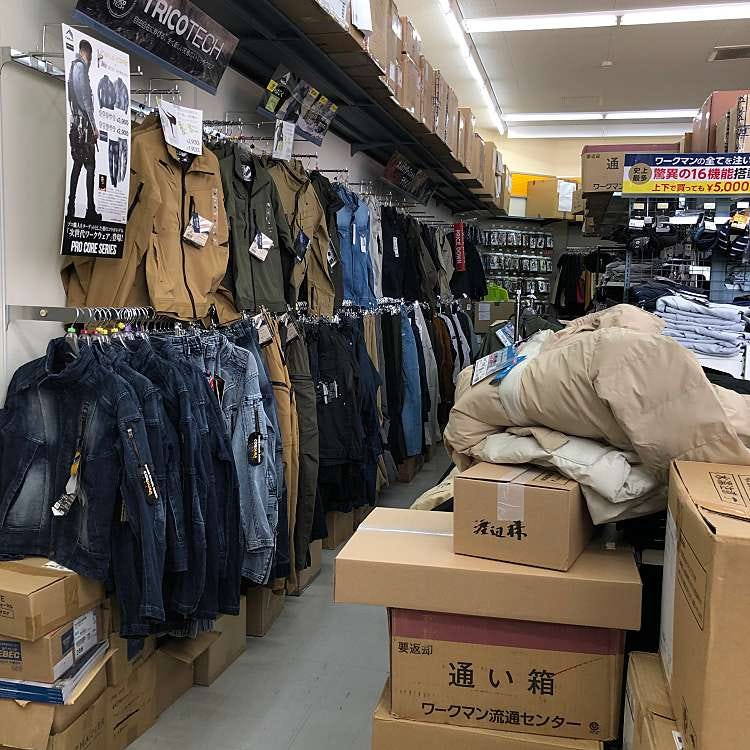
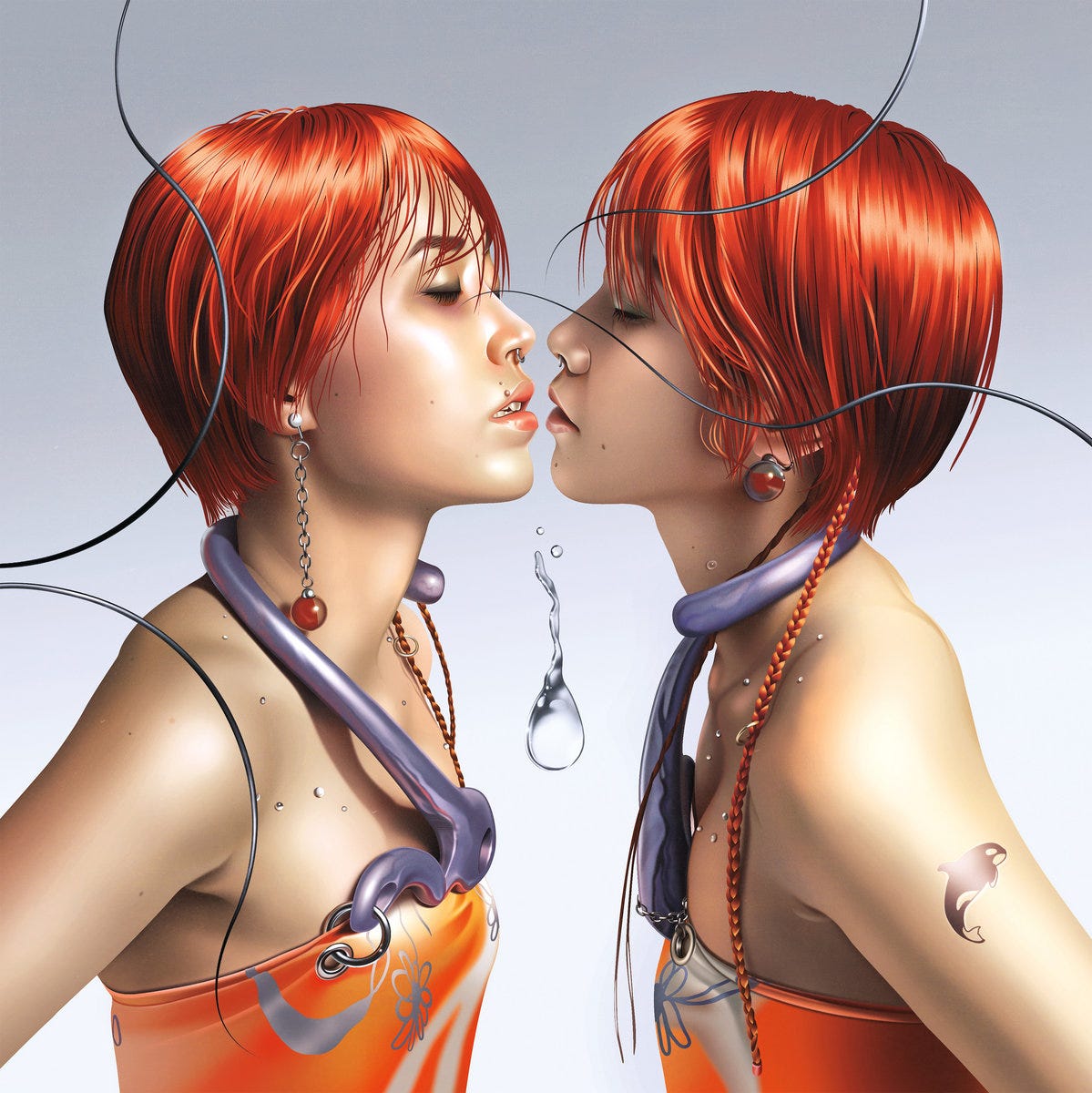

obsessed with that foodman review!